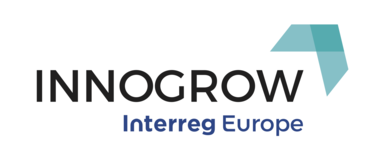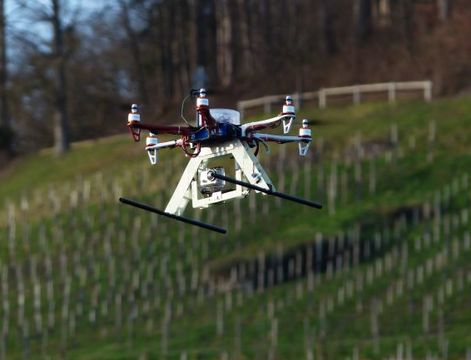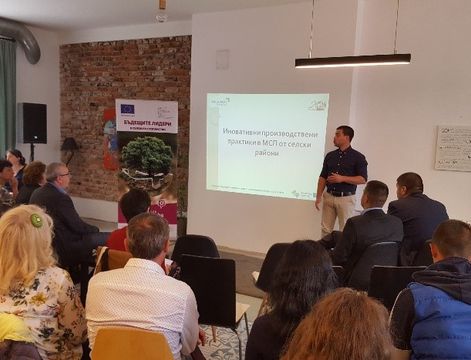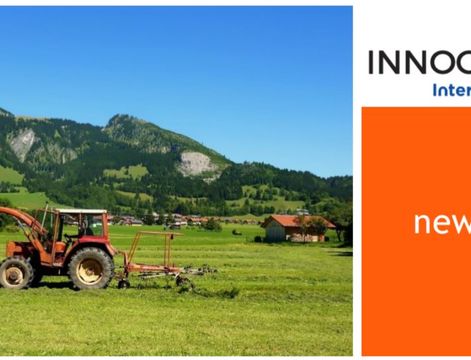
On September 14, 2017 (Thursday) at 11:00 in the conference hall of the Chamber of Commerce and Industry - Stara Zagora was held the third workshop with local stakeholders on the above-mentioned project. The aim of the INNOGROW project is to improve the conditions for encouraging innovation in SMEs in rural areas to increase their competitiveness.
The meeting started with a presentation of the project and the results of activity A1.4, which examines the barriers and incentives that prevent / encourage rural SMEs to invest in innovation and development. The results of the study, which set the two biggest barriers for rural SMEs to invest in innovation:
1) SMEs in rural areas have difficulties in obtaining the necessary funding for investment in innovation and development;
2) SMEs in rural areas do not feel that they have enough support from regional and national institutions regarding preferences for innovation in development.
During the meeting experts from SZREDA put forward two main topics for discussion related to the problems:
1) Tax regime that gives relief on the revenues of SMEs from their own patents in order to be invested in development activities;
2) Dropping of the restrictions for applying for OPIC funding for micro-enterprises in rural areas.
The idea that united the participants in the discussion in the third stakeholder meeting was that an approach is needed to give maximum assurance that funds falling within the scope of the tax relief regime would be invested in R&D by companies. Another proposal on the subject was that investments in the development in question should be made in close cooperation with universities and/or scientific institutes in Bulgaria.
In this sense, the approach of supporting the financing of innovation should not be limited to rural SMEs but it should also be relevant for SMEs from all over the country. Similar tax regimes have been operating successfully in different EU Member States for years.
Participants in the meeting shared their agreement on the second topic, but also noted that changes to the OPIC regulation would be possible in the new programming period linked to a change of regulations at EU level.
It was proposed to encourage the use of innovations resulting from the work of Bulgarian universities and research institutes and as a concrete example was proposed to provide additional points when applying for funding to beneficiaries who would use in their project proposal innovation from Bulgaria.
It was then immediately noted that such a measure must not infringe the principles of free competition and should not be restrictive.
All participants in the meeting agreed that it was critical that the planning of follow-up steps to implement the recommendations would be the subsequent commitment of other institutions directly involved in the implementation of the proposals in question to ensure their effectiveness and efficiency as a transfer of good practice.












